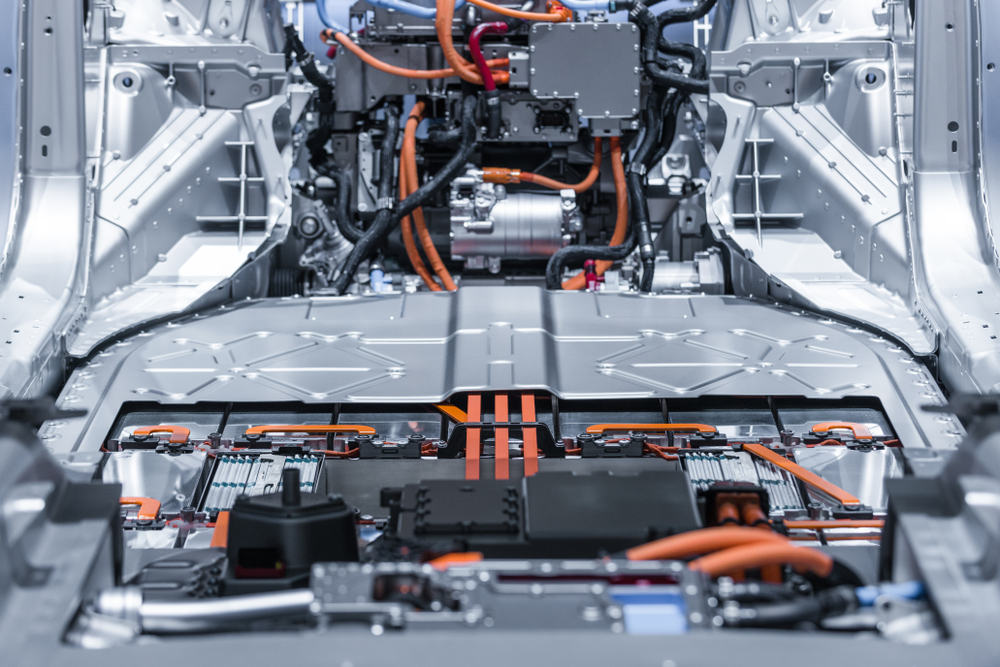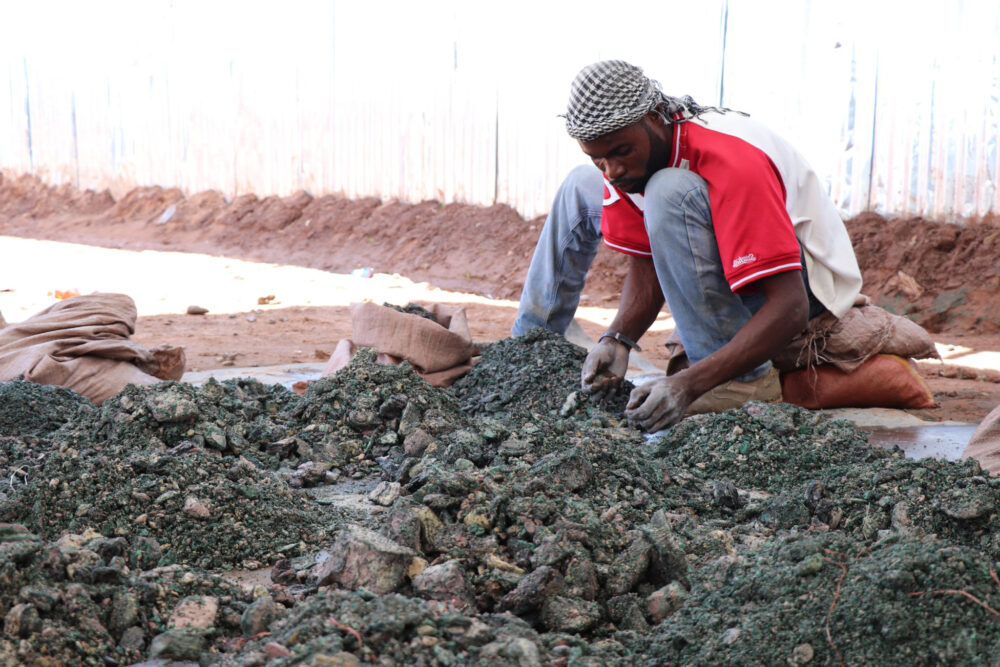Analysis by Earthworks shows that effectively recycling end-of-life batteries could reduce global EV mineral demand by 55% for newly mined copper, 25% for lithium and 35% for cobalt and nickel by 2040

Current battery technologies require a significant amount of materials that are found predominantly in environmentally sensitive regions (Credit: Shutterstock/Sergii Chernov)
Recycling electric vehicle (EV) batteries could significantly reduce the need for new mining, according to a report.
The analysis by non-profit environmental organisation Earthworks shows that effectively recycling end-of-life batteries could reduce global EV mineral demand by 55% for newly mined copper, 25% for lithium and 35% for cobalt and nickel by 2040.
The report, which was prepared by the University of Technology Sydney’s Institute for Sustainable Futures, highlights that given the pace of growth in demand for EVs, it will also be important to pursue other strategies in tandem with recycling, including policies to disincentive private car ownership and make forms of active and public transport more accessible.
“This research proves that we don’t need to dig new holes in the ground to power the clean energy transition,” said Payal Sampat, Earthworks’ mining programme director.
“We can accelerate the transition to a sustainable materials economy by ensuring that the minerals in electric vehicle batteries are sourced responsibly.”
Materials for electric vehicle batteries predominantly found in environmentally sensitive regions
Current battery technologies require a significant amount of materials that are found predominantly in environmentally sensitive and often socio-economically marginalised regions of the world.
One of the metals in question is cobalt, which is a key ingredient of the rechargeable batteries that are used to power EVs.
In 2019, 70% of the world’s entire cobalt production was estimated to be in the Democratic Republic of Congo (DRC) in Central Africa, where a significant artisanal mining sector has bloomed in recent years, buoyed by growing demand for the metal.

There have been several examples of dangerous working conditions, human rights abuses including child labour, and environmental damage associated with Congolese cobalt – prompting many major companies who rely on the country’s supply chains to form initiatives aimed at promoting higher ethical standards.
But as demand for these materials increase, Earthworks highlights that the pressures on countries like DRC are “likely to be amplified”.
For clean energy to be truly clean, it believes socially just and ecologically sustainable, responsible options “must be developed and supported to reduce adverse effects along the minerals supply chain”.
Recycling of electric vehicle batteries limited by lack of strong economic drivers or policies
A key finding of the report is that it is technologically possible to recover all four of the assessed metals – copper, lithium, nickel and cobalt – at rates above 90%. But current recovery is limited by the lack of a strong economic driver or policy that could encourage the use of recycled materials.
In the future, the analysis also highlights that end-of-life EV batteries are likely to be the major source for secondary metals for cobalt, lithium and nickel, while copper is likely to come from general copper recycling routes.
While not yet broadly established, it notes that reuse schemes could allow batteries to have a second life in a new application once they are no longer considered suitable for EV use, with the most likely market coming in grid storage applications.
The report also found that reducing demand for private car ownership is an essential part of any strategy to limit new mining.
It highlights that public transportation and active transport, such as bikes, could reduce demand for private car ownership – but the primary barrier is a lack of the necessary policies and incentives to enable such a shift, particularly in North America.
“EV manufacturers have a critical role to play in ensuring responsible minerals sourcing,” said Earthworks. “They have a responsibility to demand the minerals used in their products are sourced responsibly, ideally through secondary sources, or through IRMA-compliant mines in the case of primary sourcing.”
Policies for managing recycling of EV batteries should align with circular economy
The report notes that best practice policies for managing EV batteries should align with circular economy principles that prioritise strategies for ensuring decreased material and energy, such as avoidance and reuse, before pursuing recycling and disposal options.
The EU has recently introduced new EV battery regulations in line with circular economy principles and Earthworks believes more industrial economies, including the US, must “follow suit”.
It also urges the adoption of strategies such as end-of-life takeback for EV batteries, traceability along the supply chain, standardisation of battery design, modular component replacement and extending battery life, and removing barriers to metals recirculation and battery takeback.
